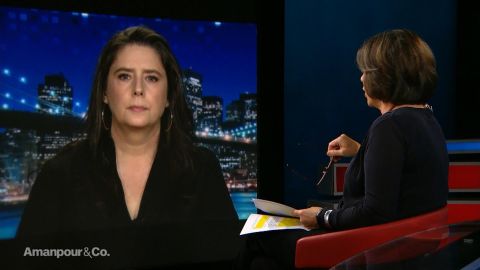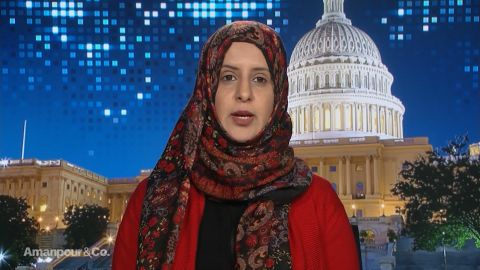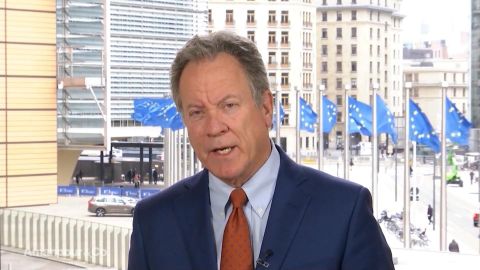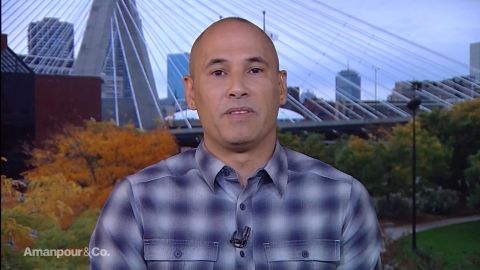Read Transcript EXPAND
If you recall, a year ago I was pretty hard on the Saudis for the blockade and for the lack of financial support for the humanitarian disaster that resulted from the war and so the Houthis were like so appreciative of the fact that I was being hard on the Saudis and I looked at them, I said, 'Let me tell you something very clearly, I'm not taking sides, but if you cross the line with us on humanitarian support I will be on your back too.' And so now, today, I'm being hard on the Houthis because they don't provide the access we need, they deny us the visas and the equipment that we need for the personnel to deliver the food assistance in the different regions throughout Yemen.
The Saudis have been more co-operative.
The UAE has really been remarkably cooperative in working with us in terms of humanitarian financial support and access, the U.S. the UK, but the pressure is building on all sides, now.
The difficulty with the Houthis is this: there's not just one simple faction.
In fact, some of the Houthis that we deal with, we can deal with reasonably effective.
There are other elements that we can't deal with and it seems like they just don't care and so we had positive meetings last week. I've been meeting inside Yemen for the for three days last week in Hodeidah at the port itself, in Aden in Sana'a, meeting with the different leaders of the different factions and of course they're telling me what I want to hear, now we'll see what type of fruit takes place in terms of progress on the ground.
So tell me what you've seen.
Give us a sort of a, paint a picture if you like, of of the drama.
You've just talked about the millions and millions who could be up for a famine if this doesn't get resolved soon but just describe in terms of, I think you called the children it's almost like touching ghost children.
It's heartbreaking.
You know the talk about numbers is one thing but the talk about little children with names, and I can tell you a little story that is not an isolated incident. I went from room to room in the hospital and there were children dying before my very own eyes and like little boy Mohammad who was eight months old and Christiane he weighed 8, I mean he weighed three point three kilograms, an eight month old who should be weighing about nine to 10 kilograms and so as he was laying, and I tickled his little feet thinking I'd get a little smile.
There was no smile.
It was like tickling a ghost and it was like that from room to room in them and the mothers were just begging for peace.
When I was in Hodeida, you can imagine, it's a war zone.
It was, the streets were like a ghost town in some old western movie and we're doing everything we can and here's what's deplorable.
When I left, literally two days after I left, we found inside our Red Sea mill grain silo, what are the type of landmines that Houthis have been using, and this isn't a Houthi controlled area.
We had seven landmines inside our facility inside the grain bins that were placed there just in the past few days.
About This Episode EXPAND
Christiane Amanpour speaks with David Beasley, Executive Director of the World Food Programme; Yemeni human rights activist Radhya Almutawakel; and Blair Foster, director of the docuseries “The Clinton Affair.” Hari Sreenivasan speaks with investigative reporter A.C. Thompson.
LEARN MORE



